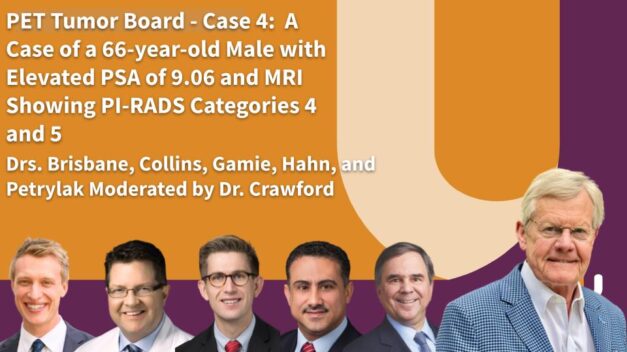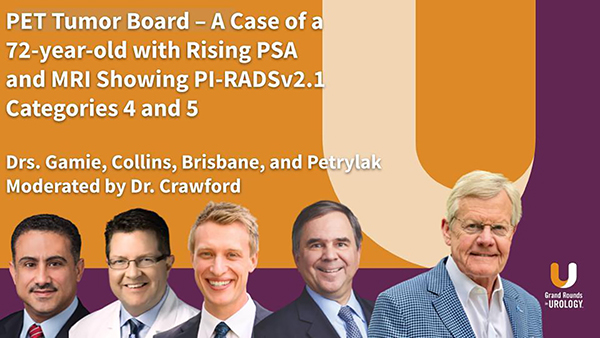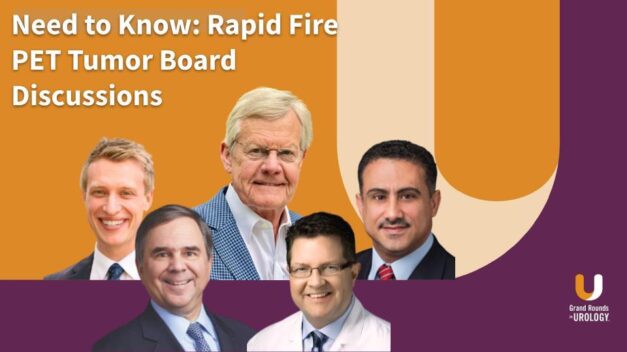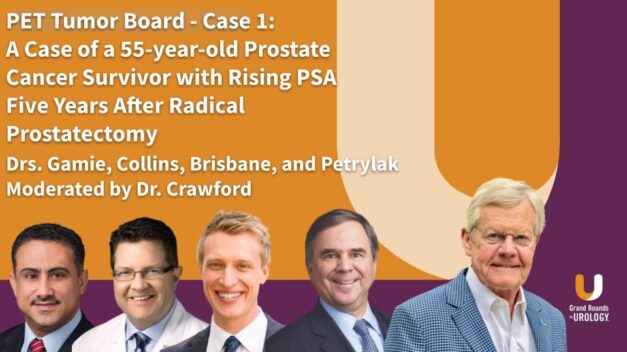PET Tumor Board – Case 4: A Case of a 66-year old Male with Elevated PSA of 9.06 and MRI Showing PI-RADS Category 4 and 5
E. David Crawford, MD, and the panel discuss a case of a 66-year-old with elevated PSA, MRI PIRADS 5 lesion, and PSA density of 0.11.
Read More




